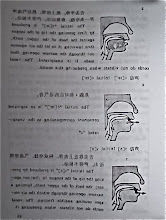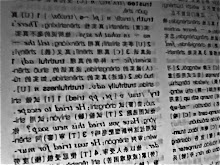At the base of the navel
she pierces the rind of the orange
with her thumbnail,
slices out an equator
by turning the fruit and the nail
in opposite arcs, as if
she is calibrating
a sextant to measure
the music of the celestial spheres,
relative to the horizon
of her thigh, where
she leverages the citrus,
whose sweetness seeps onto
her snow-pants
in a few small beads that slide off
and fall into the snow,
leaving behind a few tiny craters
in the shadow of her leg,
a moon-colored blue like the light
from a TV screen left on a station
in the interstitial standby of programming
in the belly of the night—that light—
walking home
from a bar at close, midweek,
en route to an early flight,
the streets as empty as on Christmas Day—
assures: you are not alone
in your inability
to sleep in complete darkness.
We don't speak.
The drone of cars and trucks
traveling on a distant highway
past the tree line hangs hushfully
in the air, infused with citrus. Citrus—
this is the scent of winter,
the scent of the remote
awareness of motion,
of consciousness. I keep track
of time by counting the occasional
crow. Peripherally, I know
she eats the orange one segment at a time,
devotionally, as to make no noise.
Five crows. Six.
Her voice emerges as though
with the seventh, as though the seventh,
over the roofs of the cars and trucks, grazing
the tree line, and through the quivering
sketches of branches drawn over
the erasures of previous attempts:
"The navel of the orange
is a conjoined and underdeveloped twin
from a single mutation of a single tree
at a monastery in Brazil almost two centuries ago."
She tosses the rind,
a continuous coil, a still frame
of a corkscrewing bottle rocket
just before it hits the ground.
It begins to rain.
The rain, too, leaves behind tiny craters
in the snow, as if snowing in reverse.
Not knowing how else to say it:
"How improbable is the color orange."
The words linger in the wake of the flight
of a crow—blue standby—echoes of the spheres—
and then I understand
that I have lost count.
John K., the first few weeks of January 2010



